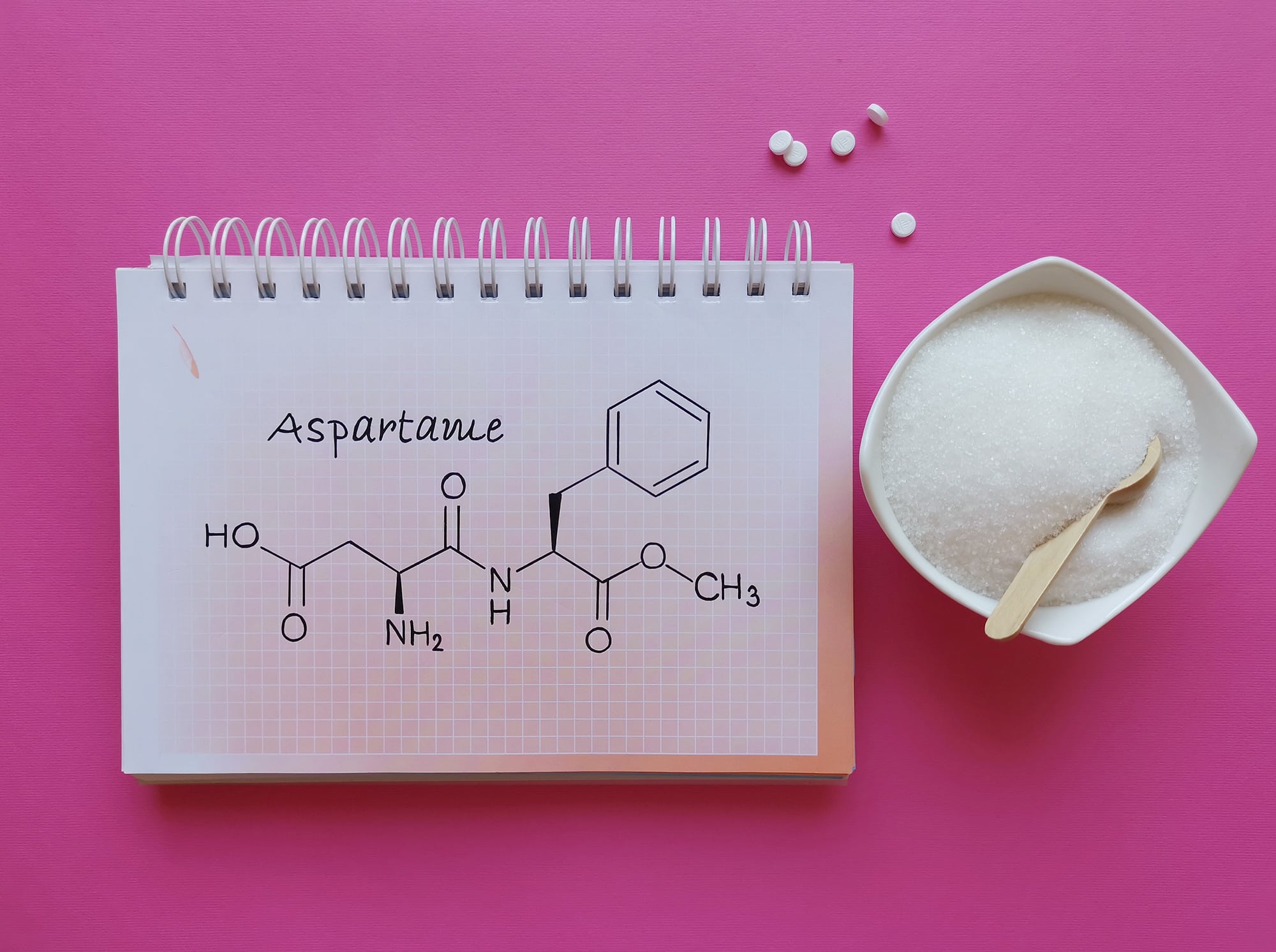Oh boy, here we go again 🤯. If you’ve been keeping up with the news, you might have noticed that Aspartame, everyone’s favorite artificial sweetener, is making headlines once more. It seems like every six months, there’s a new claim or statement about Aspartame that stirs up controversy, most of which turn out to be either completely unfounded or a significant distortion of the actual research.
Today, I’m here to shed some light on WHAT is happening with Aspartame and HOW it might affect you, if at all.
The Latest Aspartame “Scandal” Explained
For those new to my blog, let’s start with a quick primer on Aspartame. This artificial sweetener, widely used as a sugar substitute, is found in various foods and beverages, from diet sodas to sugar-free gum. Composed of two amino acids, aspartic acid and phenylalanine, Aspartame is metabolized by the body into these components, offering a low-calorie alternative to sugar.
The controversy flared up again when the International Agency for Research on Cancer (IARC), a division of the World Health Organization (WHO), labeled Aspartame as “possibly carcinogenic.” However, several key points are missing from the headlines:
- The classification is “Conditional,” meaning it doesn’t apply to everyone due to participant diversity.
- The safe consumption levels of Aspartame were not considered in this classification.
This report has garnered attention because it seems to support the findings of a 2022 study from France, which suggested a potential link between Aspartame and an increased cancer risk. This study tracked over 100,000 adults, finding that higher consumers of artificial sweeteners had a slightly increased risk of cancer. However, it’s crucial to understand the context and limitations of these findings.
Should You Be Worried About Aspartame?
My take? No. And here’s why:
- Many everyday products, including aloe vera and mobile phones, are classified similarly without causing widespread panic.
- The FDA has not endorsed these findings, maintaining Aspartame’s safety at current consumption levels.
- The referenced study indicates that only “higher consumers” of artificial sweeteners face an increased risk, a category most of us do not fall into. For context, being a “higher consumer” would mean drinking more than 6 cans of diet coke daily for someone my size.
Interestingly, the IARC report doesn’t mention the dosage of Aspartame considered safe, a detail they plan to release later. This omission speaks volumes about the nature of these alarming statements.
Wrapping Up
Thank you for diving into this topic with me. If you have any questions about Aspartame or anything else discussed, feel free to drop a comment below. Remember, staying informed is key to making healthy choices without succumbing to unnecessary fear.

Holly T. Baxter is an Australian Dietitian with over 13 years of experience in health and fitness. She holds a degree in Food Science and Nutrition and a Master of Dietetics from Deakin University. A former professional physique athlete, Holly has two World Championship titles. Her latest project, BiaBody, is dedicated to women’s health and fitness. As an APD Dietitian and Online Physique Coach, she focuses on evidence-based health education and empowering women through fitness.

